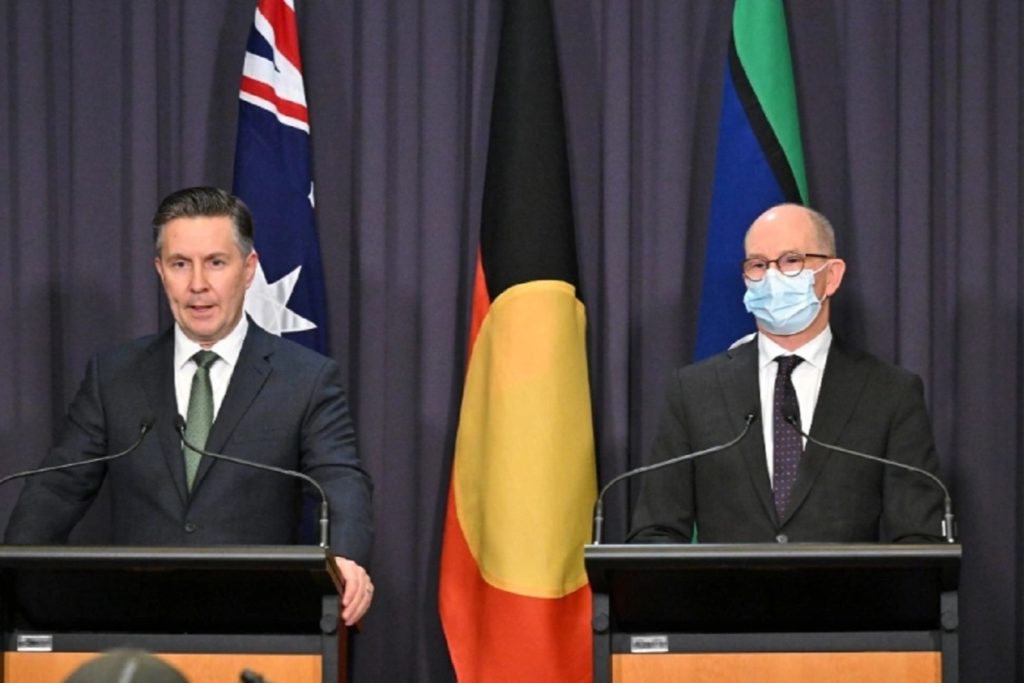A new wave of Covid cases has the nation’s top doctor calling on bosses to allow their employees to work from home.
In a statement on Tuesday, Australia’s Chief Medical Officer, Professor Paul Kelly, told employers they should consider the feasibility of some employees working from home, wearing masks in the workplace, and supporting employees to take leave when sick.
“Employers should review their occupational health and safety risks and mitigations, and their business continuity plans,” says Kelly.
This advice comes as Australia experiences a significant increase in cases of the new BA.4 and BA.5 subvariants of the COVID-19 Omicron strain. These highly infectious variants are expected to increase Covid cases throughout Australia over the coming month and could increase pressure on the already overwhelmed hospital system.
Alongside Kelly, during the press conference at Parliament House Health Minister, Mark Butler, said hospitalisations were “almost certain to increase further” over the coming weeks and the number of total infections was “likely to be more than double” the 300,000 recorded in the past seven days.
“The other difference obviously between the situation we confront today and in January is that hospitals are also grappling with flu and a range of other respiratory illnesses and the usual surge in hospital activity that we see during winter,” says Butler.
Since the eligibility widened for a fourth vaccine dose, more than 560,000 have been administered in the first week of the expanded rollout, compared with approximately 180,000 the week before.
While vaccines remain very effective at providing protection from BA.4 and BA.5, Kelly says vaccination alone is not effective at stopping infection or transmission of the virus from person to person.
“We cannot stop this wave of infections, but we can slow the spread and protect the vulnerable. We have done this before and we can do it again,” says Kelly.
The Australian Health Protection Principal Committee (AHPPC) has reiterated its advice on reinfection periods, testing and isolation, mask-wearing, vaccine boosters and treatments, and called on employers to allow work from home if feasible.
“All these recommendations are based on what we know works to either reduce the spread of the virus or protect those at highest risk of severe disease,” says Kelly.
While working from home has become the new normal during the Covid-19, many workplaces have called their employees back into the office in recent months. With an absence of government mandate, the choice of allowing employees to work from home falls on employers.
As Kelly urges employers to implement work from home options, he emphasises that decreasing Covid cases to protect the most vulnerable members of our community is not about individual responsibility but rather,“concerted and sustained community action.”
“Reducing the impact of Covid-19 is a shared responsibility for everyone. We can all play a role in protecting ourselves and our loved ones, our hospitals and the wider health system, those most at risk, and society as a whole,” says Kelly.


